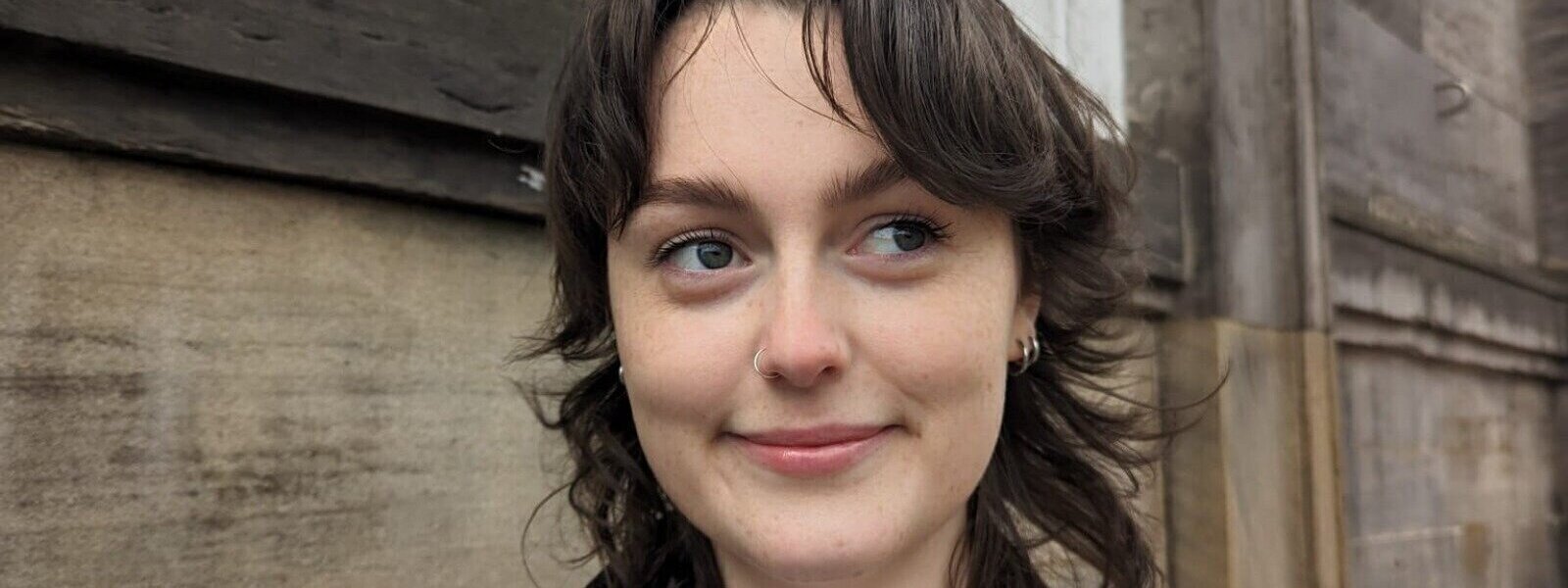
Monique is currently undertaking a PhD in History and is also a graduate from the MSc Health History programme at the University of Strathclyde
Tell us a little bit about your background...
I have a long history with the University, starting in 2017 with my undergraduate degree in History. I had little idea what I would like to do afterwards, as with many students of social science, but I came to the realisation during lockdown that if I worked hard enough, I could make a career out of my passion for history and research. Though this epiphany came late in my degree, I applied for the funded MSc in Health History during my first year working within EDI for a sustainable fashion company. My job there was tough but prepared me for the stress of the MSc which inevitably drew me closer to becoming a full-time researcher. After completing my thesis on ‘Autism and Subculture’, I searched for the next step as a medical historian which led me to my current position as a PhD candidate studying the migration of South Asian doctors.
What drew you towards undertaking a research degree?
I am constantly looking for answers. I thrive puzzling over a philosophical conundrum that may have no definitive answer. Things that may seem mundane to others also intrigue me. I love spending hours in an archive even if I don’t find anything relevant to my research. I have also been inspired by many of my tutors and the materials I have read throughout my time at university. I would love to contribute something original to the world and make people think differently about history and its relationship with the present.
Tell us about the format of the programme. What is a typical working week like?
I am currently four months into my PhD, so I am still getting to grips with the project. Recently, I have been spending long hours in the grad school pouring over books on the history of psychiatry in India for my upcoming literature review. Other than that, I attend meetings with various people, including my supervisors, and have spent some time in the Royal College of Physicians and Surgeons examining their archives. This has been the highlight as I am somewhat of a recluse and prefer old books to people!
Tell us about the research you are conducting...
I am currently looking at the migration of South Asian doctors during the years of British Empire. In the mid-nineteenth century the British government intensified the enforcement of their medical norms upon the rest of the world – especially within the colonies. In South Asia, indigenous practitioners were required to obtain a medical license from Britain to practice in their home country. This led to a period of unprecedented migration from South Asian medical practitioners, many of whom obtained their license from the Royal College of Physicians and Surgeons Glasgow (RCPSG). Using the archives provided by RCPSG and oral history interviews with South Asian migrants this project seeks to produce a more people-centred approach to a history that has gone largely untold.
What is the research community at Strathclyde like? How has it been working with other students?
I have yet to meet many of my fellow students as I have not enrolled in any classes yet. However, those I have met share the same passion for research and the values that underpin Strathclyde’s attitude towards creating a more equal society.
What are your future career goals?
I hope to become a full-time academic. Producing research papers, writing books and collaborating with others in my field to further the knowledge of medical history. I also intend on making academia a more inclusive space, not just in terms of EDI, but to make the concepts that are spoken about at a high level more accessible to other audiences. As I build my confidence, I hope to do this through YouTube or publishing my notes online through an app called Obsidian.
What advice would you give to someone considering applying for this course?
If you are unsure on doing a PhD because of the price or you don’t think your individual project will be funded, look at existing projects from SGSAH or SGSSS. Also, don’t be afraid to talk about your experiences outside of academia. The humanities department at Strathclyde are extremely unpretentious and are always looking for unique perspectives and experience.
